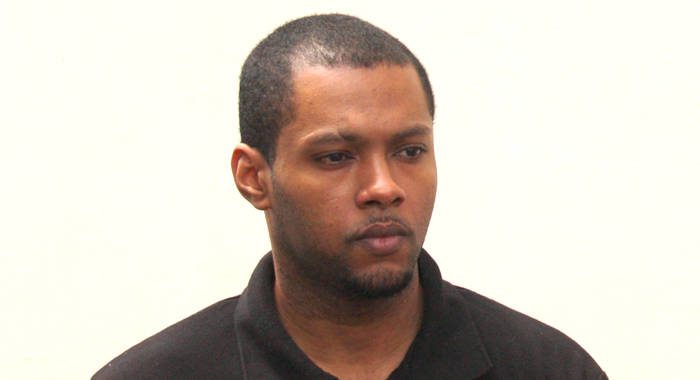Remand prisoner Vernon Primus, an accused murderer, on Wednesday, told the Serious Offences Court that he had foregone a hospital visit last October because he had been told that gunmen were waiting for him at the Milton Cato Memorial Hospital.
Primus’ assertion came as the preliminary inquiry into the November 2015 murder of real estate agent, Sharleen Greaves, reconvened in Kingstown.
Adolphus Delplesche of the National Prosecution Service had responded in the affirmative to Chief Magistrate Rechanne Browne-Matthias’ question about whether he was ready to proceed, when Primus said he had some issues to raise.
Primus, who is unrepresented, complained that confidential information sent to him by his previous lawyer, Michaella Ambrose, had been addressed to the Superintendent of Prisons, Brenton Charles.
The magistrate told him this was standard and the accused man then claimed that the prisons superintendent had “censored” some of the material.
Last year, Ambrose removed herself as the attorney on record for Primus, citing case management differences between her and her client.
Primus also told the court on Wednesday that Ambrose had not returned to him a “piece of substantive evidence”, which he said the lawyer said she can’t recall being given.
Another issue that Primus raised was that he had had a conversation with someone in the presence of the supervisor of prisons.
He said a document was prepared based on the conversation and had been sent to the person for signing, but the person did not return the document.
Primus told the court that the person was later contacted by the police and the person then told him that they do not want to be seen “as going against the public”.
He said the information that the person kept would be vital during an appeal.
But the chief magistrate noted to Primus that the proceedings are not even at that stage yet.
She pointed out to the accused murderer that he is still presumed to be an innocent man.
Browne-Matthias further explained to Primus that the preliminary inquiry was to determine if the prosecution has enough evidence to sustain a charge. If that is the case, the case would then be sent to the High Court for trial by judge and jury, she said, noting that even then, he could appeal, if convicted.
She told him that if the case does go to trial, he could raise the matters then, adding that he would be provided with a lawyer then, if he cannot afford one.
Primus also complained about his diet in prison and said when he requested to see a prison welfare officer, they were either unavailable or ill, but added that this had not always been the case.
He also said he had found an attorney that he felt comfortable with, but had been told that this person is too young and inexperienced to handle a murder case.
Primus did not identify the lawyer, but asked the magistrate if this is the case.
Browne-Matthias told him that while a young counsel might not have the experience, every lawyer has the requisite training to handle a murder trial.
She further added that a young lawyer might be more au fait with case law and might bring a new vigour to the defence.
Primus also told the court that some of his possessions in prison have mysteriously disappeared, adding that he had called it to the attention of the supervisor of prisons.
He said these items included “substantial evidence” that could find him innocent, but told the court he would rather not say what they were.
But the magistrate would go on to stop Primus in his tracks when he raised his next issue.
Primus said that a lot of persons were finding him guilty before he is tried, and, pointing to a man in the gallery, said, “For example, that young man is counting his chickens before they hatch.”
“What do I have to do with this,” the surprised-looking man responded.
“That is where I would stop you,” the chief magistrate told Primus.
She went on to tell him that she is as fair a magistrate as any other and her duty is to weigh the evidence presented by the prosecution and determine if he has a case to answer.
Addressing the other issues that Primus had raised, Browne-Matthias said she couldn’t assist him in the matter involving his previous attorney.
Primus, however, said he has notified a counsel in England “and that should work itself out”.
The magistrate further told him that she could also look into the issue with his diet and the threats that he said had been made against him.
She asked him if he still wanted to seek medical attention and Primus said yes. The magistrate said she would also look into that.
Primus is accused of killing Greaves, 33, who was found dead in her office at Arnos Vale on Nov. 14, 2015.
Police say she was stabbed to death sometime between Nov. 13 and 14.
The preliminary hearing continues.







There had to be blood stains on his clothing and I hope they were sent for forensic testing.